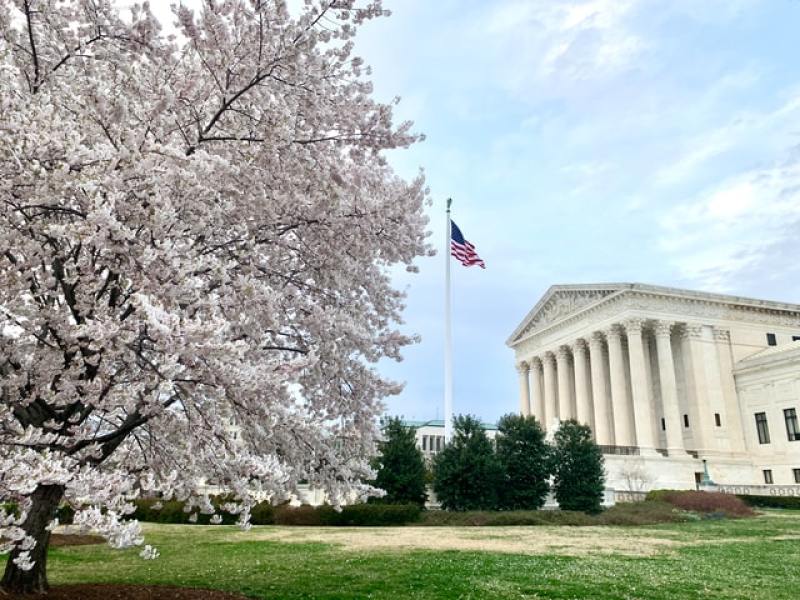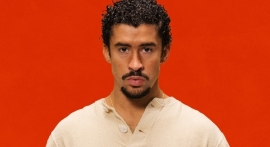
The United States Supreme Court heard oral arguments on Monday on the "Kennedy v. Bremerton School District" case, which intends to determine the constitutionality of firing a government employee for praying in public.
First Liberty Institute, the legal counsel of former Bremerton High School Coach Joseph "Joe" Kennedy, live-streamed the oral arguments in the Supreme Court on the case. First Liberty stressed that it was a historical moment for Kennedy since the six-years-running case is finally being heard in the Supreme Court.
Kennedy has asked the court to reverse the ruling of the lower courts-the U.S. District Court for the Western District of Washington and the U.S. Court of Appeals for the Ninth Circuit-that sided with his former employee. The Supreme Court accepted the case's review last January and scheduled it for April 25.
Christianity Daily reported previously that Kennedy has taken the case to the Supreme Court in September with the hope of righting the wrong done to him by his former employer after the lower courts sided with them.
Brenton High School initially suspended Kennedy before terminating him. The school countered that the coach's fans and students could see him during the 15-seconds he prayed silently in the football field. First Liberty explained that Kennedy was a former marine who promised God that he will give thanks every after game.
As per The Christian Post, former U.S. Solicitor General Paul Clement represented Kennedy during the oral arguments. Clement, who also served as former President George Bush's Attorney General, stressed in his opening argument that Kennedy's prayer after games was doubly protected in the First Amendment of the Constitution. Clement particularly cited the Free Exercise and Free Speech Clauses.
"When the school district fired him for that fleeting religious exercise out of endorsement concerns, it not only violated the First Amendment, but it ignored a veritable wall of this court's precedents that make it clear that a school does not endorse private religious speech just because it fails to censor it," Clement said.
Associate Justice Sonia Sotomayor then asked Clement to differentiate when is a government employee's prayer considered public or private. Sotomayor gave as an example a teacher reading aloud the Bible before class starts.
Clement responded that it is considered private speech when the teacher reads before or after the bell in a silent or barely audible manner. But Sotomayor contested that the teacher, being in the classroom, remains on duty and could be curtailed by the school for his or her actions. The justice then brought into the spotlight the particular case of Kennedy, pointing out that praying on the football field after games would still be considered being on duty.
"The school has a fair amount of flexibility to determine what the duties of the coach are. Here, they did not say that his duties were an all-encompassing supervisory role. It's in the record, and I think undisputed, that the coach could do other things, other private things of a comparable amount of time because this is a fleeting religious exercise," Clement rebutted.
The other judges similarly raised their concerns about the case. Associate Justice Elena Kagan highlighted that Kennedy's prayers put undue pressure and coercion on the students to participate despite not wanting to. Associate Justice Neil Gorsuch, on the other hand, cited the "Santa Fe Independent School District v. Doe" case where prayers held over a loudspeaker before football games were ruled unconstitutional.
In response to each, Clement pointed out that the school district never cited any coercion concerns against Kennedy as their reason for his termination. Clement reminded that the school district's only concern was to avoid any endorsement issues, which is for the public to perceive that they encourage Kennedy's private prayers in the field.
Clement also underscored that Kennedy's case is different because he never used a loudspeaker in his prayers. He compared Kennedy's actions to that of athletes who would pray by making the sign of the cross or kneel in thanksgiving to God before or after their games.
The oral arguments lasted for two hours. According to SCOTUSblog, Kennedy received a warm reception from some justices during the arguments. SCOTUSblog said a majority of the justices took sympathy for the coach. However, it was still unclear "what rationale the justices might adopt if they ultimately rule in the coach's favor."



















